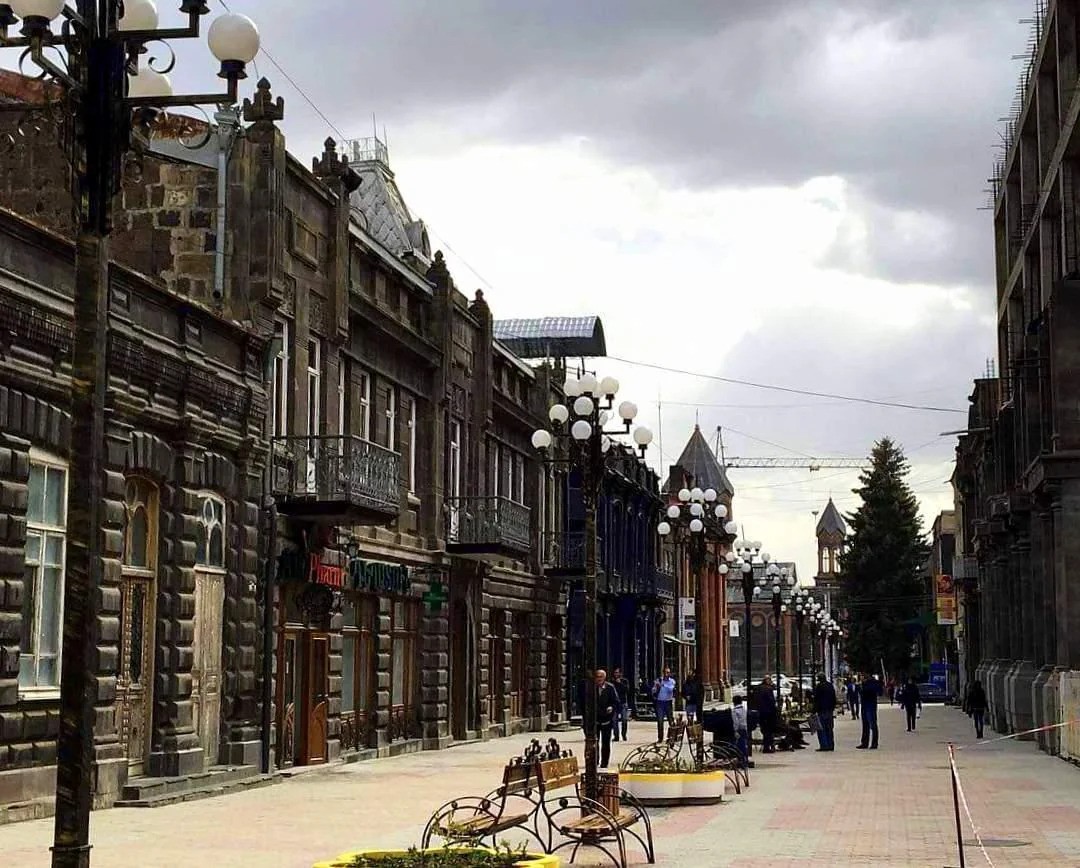The observation of primaries of the candidates nominated by the Civil Contract Party for the position of Acting Mayor of Gyumri took place from December 8-10, which included door to door visits, monitoring of the results counting as well as the study of the forms and documents created by the Civil Contract party.
Description of the process
- The tools chosen by the Civil Contract Party to conduct the primaries included a mobile ballot-box and ballot-papers containing the portraits of the candidates, through which residents were to cast their votes for one of the nominated candidates.
- Throughout the whole observation, the ballot-boxes were sealed with signed papers, and ballots stamped with the CC party seal were used. The same voting ballot boxes were used for three days. At the end of each day they were returned to the party office and apparently were not opened until the count at the end of the third day.
- The primaries/survey was organized by 5 groups consisting of 3 persons, who randomly selected the streets where they would conduct the survey, basing the selection of buildings and apartments on their numbers. (e.g., odd-numbered buildings, even-numbered apartments, or vice versa)
- One of the group representatives was carrying a camera, which recorded the route, the selection process, and compliance with procedures. Citizens were informed about the purpose of the voting and were asked to vote secretly and to put their ballot in the ballot-box themselves.
However, considering that personal data of residents was collected through actual video recording and home visits, the CC party should make an effort to exclude suspicions of unscrupulous use of this data ahead of the snap elections.
- The persons who conducted the primaries were young people living in other communities of the party, which was positive in terms of neutrality towards the candidates. Due to strict adherence to the selection process, numerous cases were recorded where the designated residents did not live in the specified apartment, and voting by neighboring apartment residents was denied on the grounds of not being part of the selection. This had a negative impact on the number of responses but appeared to foster confidence in the process.
- It was obvious that only a small portion of the residents were informed about the “primaries,” and some were convinced that in this version the Civil Contract was effectively replacing the community leader elections by imposing their candidate.
The recorded problems
The observers, together with the groups conducting the primaries, visited 647 apartments/houses, of which 173 residents rejected the offer to participate in the primaries, while 474, or in cases of 73%, participation took place. It should be noted that the statistics do not include cases where there was no response to the knock, including cases where residents who were apparently present at home simply did not open the door, which might decrease the consent rate for participation by around 10%.
- The random selection methodology, designed to ensure the randomness of the selection, was decreasing the number of survey participants and was eased after the first day. However, it is important to note that some groups conducting the survey also deviated from the prescribed methodology on the second and third days. It is also worth noting that the selection method, on the one hand, did not statistically ensure geographical, gender, or age representation of the Gyumri population, and on the other hand, it made the process difficult, was not flexible, and had a negative impact on the number of participants.
- The standard welcome speech given by the groups conducting the survey was structured in such a way that at first glance, residents would know that the CC party was offering them to participate in the “primaries for the community leader,” and only then would they learn that “this is the primaries for the interim community head appointed by the Prime Minister; in future, elections with the participation of other parties will take place.” Such wording may mislead some residents and overshadow the importance of the upcoming snap elections.
- The groups conducting the survey generally performed their functions conscientiously, ensured the secrecy of filling out the ballot, and generally ensured an atmosphere of impartiality and integrity throughout the process.
- Despite efforts to ensure randomness in selection and to address the geographic representation of Gyumri, it should be noted that the influence of separate neighborhoods on the overall results has been disproportionately high in favor of the candidate who received the most votes in the primaries. Moreover, repeated cases were observed in that district when citizens were waiting in front of their homes at the addresses planned by the selection, attempting to vote outside their homes, in their cars, or in other ways making it less credible that they were registered at that address, that is, were scheduled to participate in the primaries according to the selection. In other districts, observers did not report such a number of similar cases.
The statistics related to such an anomaly in voter turnout is similar to the situation recorded as a dangerous anomaly, when, in parallel to the increase in voter turnout, there is a notable rise in the number of votes cast in favor of a particular candidate.
Given the small number of ‘electoral districts’ being compared and the corresponding inability to fully apply statistical tools, it is difficult to speak of a truly substantiated statistical anomaly or unethical influence on the results. At the same time, the data is sufficient to assert that the candidate who won the primaries organized by the Civil Contract Party achieved this outcome primarily by receiving votes from a single geographical unit.

